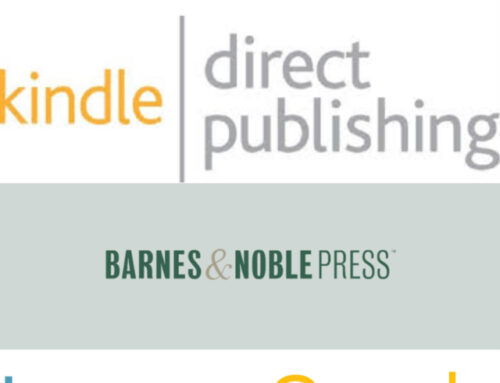Whether you’re a full-time author or you juggle a day job and write in your spare time, creating a consistent writing schedule is challenging. Independent authors may not have the traditional deadlines or editor hovering over them waiting for their latest masterpiece. You must become your own accountability partner and establish regular writing times.
Establishing time frames may be the most powerful tool in your writing box, but it must include more than time spent typing. Committing time to focus, creative input, brainstorming, writing, and editing all contribute toward an excellent end product.
The Psychology Behind Resolutions and Setting Routines
Solidifying your goals for when and how long you’ll spend writing is a resolution you can make any time of year to take your writing to the next level. You’ll have more success if you make a daily schedule because creating a new routine can reduce stress and benefit your mental health. A study showed it takes people an average of 66 days to establish a new habit.
You must be realistic about your current obligations to stick to your daily writing commitment. If you currently only have 10 minutes a day to write, make the most of that time. You can always revisit the schedule and add more minutes.
Setting S.M.A.R.T. Goals
Lack of structure and routine can lead to giving up. Instead of pushing yourself to write longer and more words, be specific. Maybe set a goal of writing Monday through Friday for 10 minutes at 11 a.m. or commit to writing 300 words on each of those days.
In another survey about New Year’s resolutions, 87% of people were likely to keep New Year’s resolutions throughout the year. One thing most of these followed goals have in common is being specific and actionable. Following a S.M.A.R.T. goal format gives you these elements.
The letters in the acronym stand for:
- Specific: You must focus on the particular task you want to accomplish. While it’s fine to have long-term goals, divide them into steps.
- Measurable: Add a measurement to your goal. In the example above, you could use 10 minutes or 300 words.
- Achievable: Your goal should be realistic. If you make it too easy or too complex, you may give up.
- Relevant: The goal must be related to your bigger life plan. If you want to be a published author by the end of the year, what would you need to complete to achieve it? You can even break your goals into smaller steps. To finish a book, you must write X chapters at X minutes daily, for example.
- Time-bound: Set a deadline to accomplish your task. If your goal is to write 10 minutes daily, how long will you follow this plan? Give a new goal at least a few weeks before changing it.
Write your S.M.A.R.T. goals out and post them where you’ll see them daily as a reminder.
Community Matters
To stick to your writing schedule, it’s a good idea to join a community of other writers who will hold you accountable to your personally imposed commitments. You can find several groups that focus on improving their writing productivity on Facebook and via various organizations and forums.
Consider creating a group of local authors and meeting regularly to discuss progress and share ideas for sticking to a writing schedule. You could hold a 30-minute writing meetup where group members gather on Zoom and work on their stories. Having accountability buddies can help you stay motivated.
Overcoming Writer’s Block and Burnout
At some point, you may face writer’s block and burnout from putting in daily effort. In a study of 428 students, researchers found that 71% of students have writer’s block occasionally. Knowing how to work through burnout symptoms and stick to your writing schedule is crucial.
In the book “The Artist’s Way” by Julia Cameron, she shares that you can often work through writer’s block by stream-of-consciousness writing by longhand. You begin writing whatever is in your brain — it does not even have to relate to your book. So, if you can’t think of what to write, just type, “I don’t know what to write. I don’t know what to write,” then let your mind and pen wander. This method is meant to free your mind, allowing you to focus.
Much of overcoming writer’s block is staying put and just writing. Even if the words you first get out are horrible, you will at least have something to edit.
Minimizing Distractions
The dog barks at something it sees out the window, your spouse knocks on the door to your office, your mom calls to ask what time you’re coming over this weekend, and you can’t focus on the task at hand.
If you want to make the most of your writing schedule, you must have focused time set apart from everything else. Hang a “Do not enter” sign on your door, turn off social media and mobile devices, and mute the TV. You must be your own motivator if you hope to publish books regularly and build a readership.
Your Time Is Worth Something
Do you endlessly scroll TikTok in the evenings or share Facebook Reels? Start to equate the time you have in 24 hours with money. Until you bring in royalties, it’s hard to determine precisely how much an hour of your time is worth. However, equating it to at least your state’s minimum wage becomes more concrete — instead of wasting an hour scrolling, you could have earned enough for tomorrow’s lunch. Thinking of your time as money helps you make the most of it.
Consistency Equals Long-Term Success
If you have a schedule in place for your writing, it’s much easier to focus on the steps to publishing. Modifying your current routine can minimize procrastination and ensure you make steady progress toward your dream of being a bestselling author. With practice, your methods will become second nature and free your mind for creative pursuits.
Consistency builds momentum. Regular writing improves basic skills and pulls fragmented ideas into a cohesive finished product that can attract new readers and make you a successful author.
Get an Editorial Review | Get Amazon Sales & Reviews | Get Edited | Get Beta Readers | Enter the SPR Book Awards | Other Marketing Services






















Leave A Comment